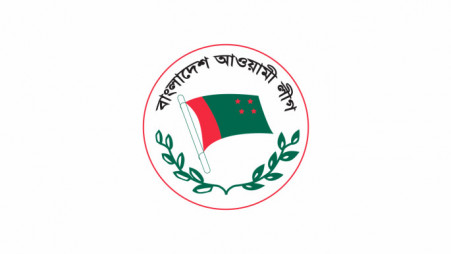Govt bans publicising statements, contents or gatherings supporting AL
Govt promulgates ordinance amending Anti-Terrorism Act

Highlights:
- Govt bans publicising support for those charged under anti-terror act
- Revised law broadens restrictions beyond listed individuals/banned entities
- Amendments include banning activities of any banned entities or individuals
- Law amended amidst protests demanding ban on the Awami League
President Mohammed Shahabuddin last night (11 May) promulgated an ordinance amending the Anti-Terrorism Act, prohibiting any form of publicity, including press statements, social media content, or public gatherings in support of any individuals or entities tried in the act, which ends such activities stemming from the Awami League.
A gazette notification in this regard was published last night.
Earlier, the draft was approved in a meeting of the Advisory Council chaired by the Chief Adviser Muhammad Yunus.
Key changes include amendments to Section 20 of the law. The revised language broadens the scope of restrictions by replacing the previous reference to "listed individuals or banned entities" with a more general phrase: "any individual or entity against whom action has been taken under sub-section (1) of Section 18."
Notably, the updated clause prohibits any form of publicity, including press statements, social media content, or public gatherings in support of such individuals or entities.
Earlier yesterday (11 May), the CA Press Wing, in a press statement, said the draft amendments include a new provision that will ban the activities of any banned entities or individuals.
As there is no provision in the present Act regarding the banning of activities of any entity, it was appropriate and necessary to further amend the Anti-Terrorism Act, 2009 to make it timely, reads the press statement.
In this context, amendments have been made to the Anti-Terrorism Act to include provisions for banning the activities of entities, as well as necessary adaptations, and restrictions on dissemination through online and social media platforms.
To fulfill the objectives of this Act, the government, based on reasonable grounds, may, through notification in an official gazette, list a person involved in terrorist activities in the schedule, or declare an entity as banned and list it in the schedule.
This comes after an amendment to the International Crimes (Tribunals) Act, 1973, to empower the tribunals to try the Awami League on charges of genocide and crimes against humanity and punish it if found guilty.
Amidst protests demanding a ban on the Awami League (AL), the amendments have been brought to the law to try the party.
The interim government at an emergency Advisory Council meeting decided to ban the party under the anti-terror laws on Saturday night (10 May).



 Keep updated, follow The Business Standard's Google news channel
Keep updated, follow The Business Standard's Google news channel















